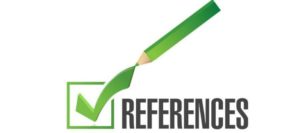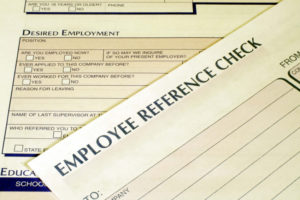
Establishing a list of references is a critical part of the job-seeking process. Not all hiring managers will ask for references, but you want to be prepared in case they do. Who will speak highly of you? Your mom and your best friend probably will, but that doesn’t seem appropriate! Keep it as professional as possible, so avoid friends and family. Narrow it down to three to five people who can vouch for your work ethic, skills, and performance. Here are the people you should include.
Former supervisor
A former boss can attest to your reliability and performance, but don’t feel like you have to include them. If you feel like they don’t know enough about your abilities and accomplishments to speak well of you, leave that person off the list—especially if you left the company on bad terms. And don’t use your current employer if they’re unaware that you’re seeking a new job. Hearing from a competing company is probably not a good way for them to find out!
Former co-workers
Your co-workers can speak about your diligence, problem-solving skills, and ability to collaborate. If they worked closely with you day in and day out, they might even be better references than a supervisor.
Friends
Although you generally want to avoid listing personal relationships, a friend or family member might be appropriate if that person supervised you at one point or is employed by the company you’re currently applying to. They can at least speak knowledgeably about your strengths and weaknesses and fit for this position.
Faculty members
If you’re a new graduate with little work experience, it’s acceptable to use a former professor or advisor, particularly if s/he taught you in a field related to the job you’re applying for. If you’re still in contact with them, high school teachers or coaches are also appropriate. Your former classmates are acceptable if you worked closely with them on long-term group projects.
 Volunteer supervisors
Volunteer supervisors
If you’ve volunteered regularly at a non-profit organization, be sure to list your supervisor or contact person there. Volunteering is impressive and increases your chances for getting hired, so it’s important to mention that.
How to go about it
Always ask your references first if it’s okay to use them. When a hiring manager asks for a list of references, remind those people that they might be hearing from someone about you. Let them know what kind of position you’re applying for and give them a copy of your resume. Be sure to point out any skills or accomplishments you want them to mention. Keep them updated and thank them for their help with this process.
List your references on a separate sheet of paper, not on your resume itself. Include each person’s name, professional title, relationship, company name, company address, phone number, and e-mail address. Only provide your list if the hiring manager requests it, but always have it with you just in case!
For more advice on preparing for a job search, check out our website at https://www.chiefofstaffkc.com
Blog written by Erin Greenhalgh

